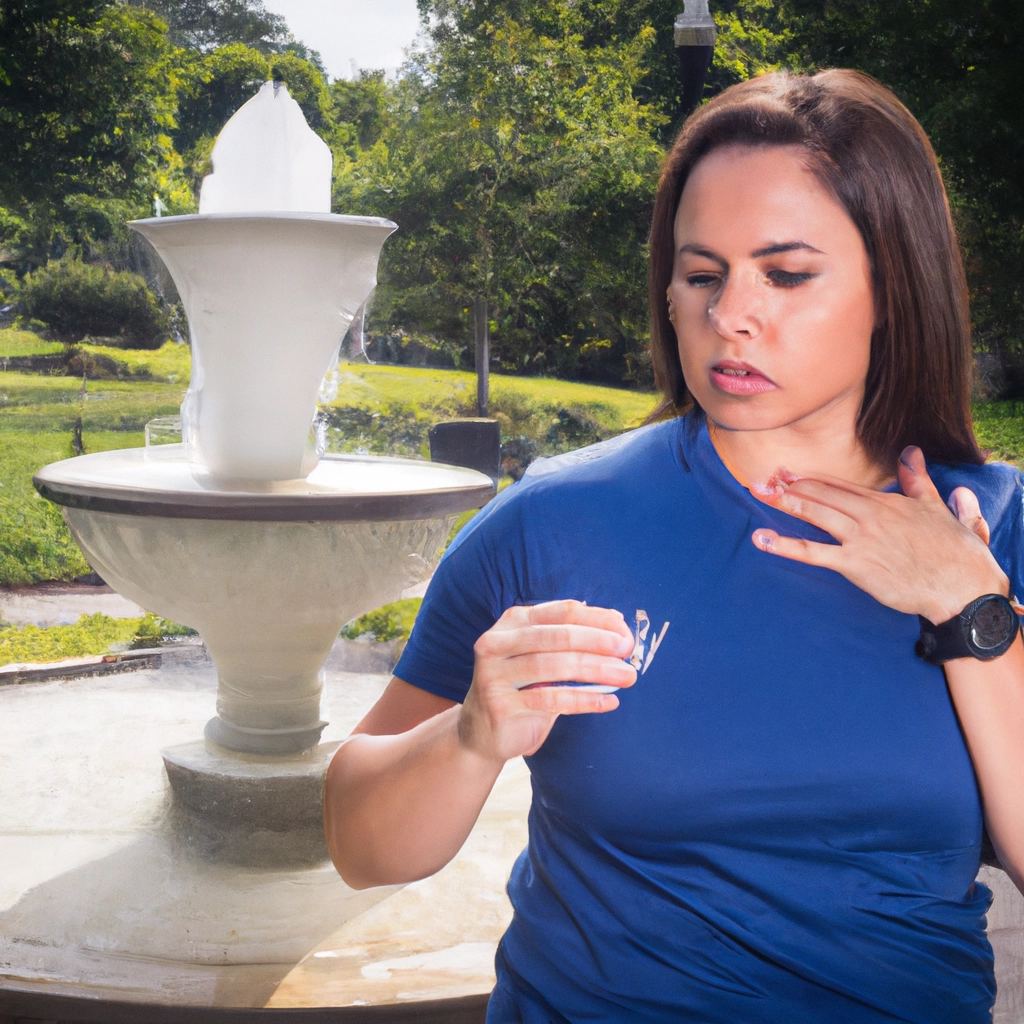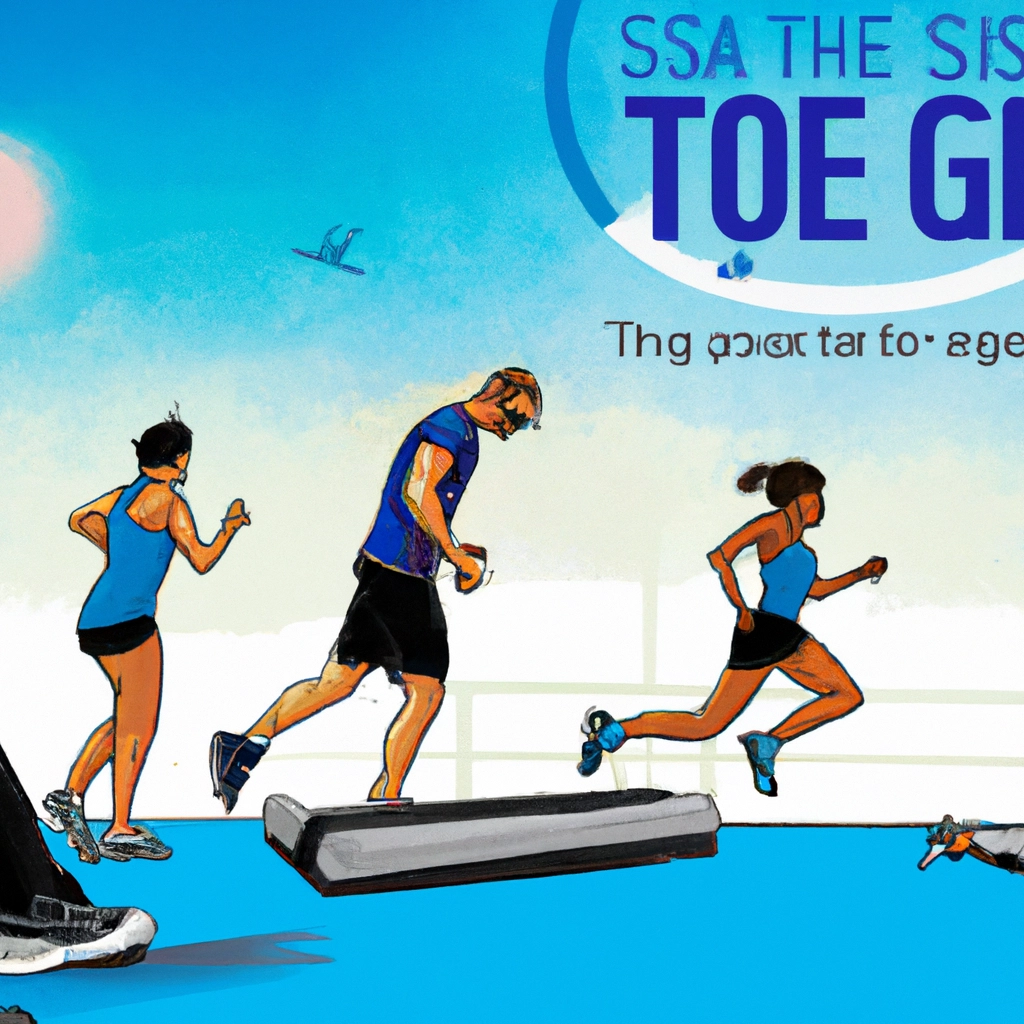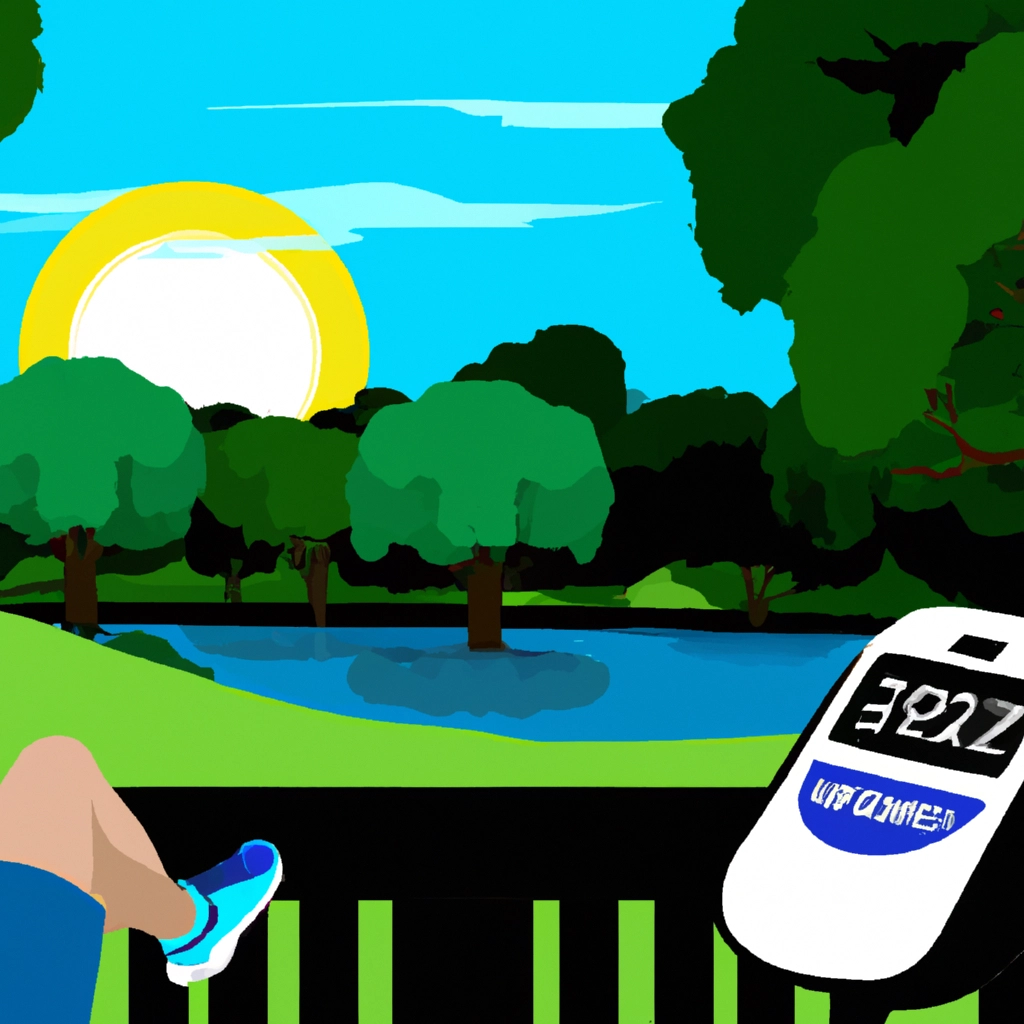

Exercise can sometimes cause an increase in blood sugar levels due to the release of glucose-raising hormones such as adrenaline and cortisol. These hormones stimulate the liver to release glucose, leading to higher blood sugar levels.
Additionally, the food consumed before or during exercise can also contribute to a rise in blood glucose levels.
Regular exercise is a cornerstone of healthy living, but it is important for individuals with diabetes to monitor their blood sugar levels before, during, and after exercise. Some forms of exercise, such as heavy weightlifting and competitive sports, can trigger the body to release stress hormones like adrenaline, which can raise blood sugar levels.
It is also essential to test for ketones in the urine before exercising, as the presence of ketones indicates that the body may not have enough insulin to control blood sugar.
Managing blood sugar levels before, during, and after exercise is crucial for individuals with diabetes. It is important to work closely with a healthcare provider to adjust insulin or other medications before workouts that may lead to a rise in blood sugar.
Additionally, choosing the right snacks with slower-acting carbohydrates, such as yogurt with nuts or peanut butter, before and after exercise can help prevent blood sugar fluctuations.
Check out this Youtube video: Curious about why your blood sugar might be high after exercise? This video will give you the answers you need!
Understanding Blood Sugar and Exercise
Regular exercise can have positive effects on blood sugar levels, especially for individuals with diabetes. When you engage in physical activity, your muscles use glucose for energy, leading to a decrease in blood sugar levels.
However, in some cases, blood sugar levels can rise after exercise due to the release of stress hormones like adrenaline, which can counteract the effects of insulin.
Physiology of Blood Sugar Regulation
Insulin and glucagon play a critical role in regulating blood sugar levels within the body. Insulin is responsible for facilitating the entry of blood sugar into the cells for energy utilization.
Additionally, it prompts the liver to store excess blood sugar for later use. On the other hand, glucagon acts to prevent blood sugar levels from dropping too low, especially during periods of extended physical activity or fasting.
Role of insulin and glucagon in blood sugar regulation
Insulin, produced by the pancreas, allows blood sugar to enter the cells, reducing blood sugar levels in the bloodstream. Meanwhile, glucagon serves as a counter-regulatory hormone, preventing blood sugar from plummeting to dangerous levels.
Together, these hormones work harmoniously to maintain optimal blood sugar levels necessary for bodily functions.
Effect of exercise on insulin and glucagon production
During exercise, the body undergoes a complex series of hormonal changes. Prolonged physical activity leads to a decrease in insulin production while increasing the secretion of glucagon, catecholamines, and cortisol.
These hormonal changes are essential for sustaining energy levels during exercise and ensuring the proper balance of blood sugar within the body.
| Hormone | Effect on Blood Sugar |
|---|---|
| Insulin | Facilitates entry of blood sugar into cells, reducing blood sugar levels |
| Glucagon | Prevents blood sugar from dropping too low, maintaining optimal levels |
Types of Exercise and Blood Sugar Response
Aerobic exercise and blood sugar levels
Most forms of aerobic exercise, such as running, swimming, and cycling, lead to a decrease in blood sugar levels. This is because aerobic exercise enhances insulin sensitivity, allowing the body to use glucose more effectively for energy.
As a result, blood sugar levels tend to drop during and after aerobic activities.
Resistance training and blood sugar levels
Now, when it comes to resistance training like weightlifting, the impact on blood sugar levels can be a bit different. Resistance training tends to have a mixed effect on blood sugar levels.
Initially, blood sugar levels may rise during resistance exercises due to the release of stress hormones like adrenaline and cortisol. However, over time, resistance training can improve insulin sensitivity and help regulate blood sugar levels.
High-intensity interval training and blood sugar levels
High-intensity interval training (HIIT) can have varying effects on blood sugar levels. This type of exercise involves short bursts of intense activity followed by periods of rest or lower intensity exercise.
HIIT has been shown to improve insulin sensitivity and promote better blood sugar control, but it can also cause a temporary increase in blood sugar levels immediately after the workout. However, the long-term benefits of HIIT on blood sugar regulation outweigh the short-term spikes.
Factors Contributing to High Blood Sugar After Exercise
Inadequate insulin production in response to exercise
Yes. Inadequate insulin production in response to exercise can lead to high blood sugar. During physical activity, the demand for glucose increases, but if the body does not produce enough insulin to regulate this influx, blood sugar levels may rise. This happens when the pancreas fails to release sufficient insulin to manage the glucose surge during exercise.
Release of stress hormones during intense exercise
Yes. The release of stress hormones during intense exercise can cause high blood sugar. When the body experiences stress from rigorous physical activity, it triggers the release of stress hormones like cortisol and adrenaline. These hormones work to increase blood sugar levels, which can counteract the efforts of insulin and result in elevated blood sugar post-exercise.
Overcompensation for pre-workout low blood sugar
Yes. Overcompensation for pre-workout low blood sugar can result in high blood sugar after exercise. Sometimes, individuals with diabetes may consume excessive carbohydrates or sugar to prevent low blood sugar levels before exercising. However, this overcompensation can lead to a subsequent increase in blood sugar levels after the workout.
Pre-existing Conditions and High Blood Sugar After Exercise
Diabetes and its impact on post-exercise blood sugar levels
Diabetes can significantly impact post-exercise blood sugar levels. During physical activity, the body’s demand for glucose increases to fuel the muscles.
In individuals with diabetes, this can lead to a surge in blood sugar levels due to the reduced effectiveness or absence of insulin, the hormone responsible for regulating blood sugar. Additionally, certain types of exercise, such as heavy weightlifting or high-intensity interval training, can trigger the release of stress hormones like adrenaline, further contributing to elevated blood sugar levels.
Other medical conditions affecting blood sugar response to exercise
Apart from diabetes, other medical conditions can also influence the body’s response to exercise in terms of blood sugar levels. For instance, conditions that lead to impaired insulin production or insulin resistance, such as metabolic syndrome or polycystic ovary syndrome, can contribute to elevated blood sugar levels during and after physical activity.
Moreover, certain medications, including corticosteroids and certain psychiatric drugs, may impact blood sugar regulation during exercise, leading to higher post-exercise blood sugar levels in individuals with these pre-existing conditions.
| Medical Condition | Impact on Blood Sugar Response to Exercise |
|---|---|
| Diabetes Type 1/Type 2 | Increased blood sugar due to insulin issues |
| Metabolic Syndrome | Elevated blood sugar due to insulin resistance |
| Polycystic Ovary Syndrome | Impaired insulin regulation affecting blood sugar levels |
| Certain Medications | Altered blood sugar response during exercise |
Diet and Blood Sugar Management During Exercise
Pre-exercise nutrition and its effect on blood sugar levels
Consuming carbohydrates 1-4 hours prior to exercise elevates insulin and blood glucose levels, positively impacting performance. Pre-workout ingredients such as artificial sweeteners, sugar alcohols, and high caffeine content can elevate blood sugar levels and pose health risks for diabetics.
Post-exercise nutrition and blood sugar control
Post-exercise, a combination of carbohydrates, protein, and some fat in meals help stabilize blood sugar levels. Checking blood glucose post-exercise and having 15-20 grams of carbohydrates if readings are 100 mg/dL or lower is essential for blood sugar management.
| Blood Sugar Level | Action |
|---|---|
| 100 mg/dL or lower | Have 15-20 grams of carbohydrate to raise blood glucose |
Strategies for Managing High Blood Sugar After Exercise
Monitoring blood sugar levels before, during, and after exercise:
It’s crucial to monitor blood sugar levels before, during, and after exercise to understand how physical activity affects your body’s glucose levels. This helps in determining the necessary adjustments to maintain optimal blood sugar levels and prevent any sharp spikes or drops.
Adjusting insulin or medication dosages for exercise:
After consulting with your healthcare provider, it’s important to make informed adjustments to insulin or medication dosages based on the type, duration, and intensity of the exercise. This ensures that blood sugar levels remain within the target range and reduces the risk of hypo- or hyperglycemia during and after physical activity.
Incorporating different types of exercise to manage blood sugar levels:
Incorporating a variety of exercises such as aerobic, resistance training, and flexibility exercises can help in managing blood sugar levels more effectively. Different types of exercises have varying impacts on blood sugar, and a balanced approach can contribute to better overall glucose management.
Risks of High Blood Sugar After Exercise
When blood sugar levels remain elevated after exercise, it can have both short-term and long-term effects on the body. In the short term, uncontrolled blood sugar levels can lead to symptoms like increased heart rate, dizziness, and confusion.
On a long-term basis, consistently high blood sugar post-exercise can contribute to complications such as heart disease, stroke, kidney damage, nerve damage, and vision problems.
Short-term and long-term effects of uncontrolled blood sugar levels after exercise
Short-term effects of uncontrolled blood sugar levels after exercise include symptoms like dizziness, confusion, and an unusually fast heart rate. In the long term, consistently high blood sugar post-exercise can lead to serious complications such as heart disease, stroke, kidney damage, nerve damage, and vision problems.
Complications of consistently high blood sugar post-exercise
Consistently high blood sugar levels after exercise can result in complications such as heart disease, stroke, kidney damage, nerve damage, and vision problems. It’s crucial to monitor and manage blood sugar levels effectively, especially after physical activity, to prevent these potential long-term complications.
| Short-term Effects | Long-term Effects |
|---|---|
| Dizziness | Heart disease |
| Confusion | Stroke |
| Increased heart rate | Kidney damage |
| Nerve damage | |
| Vision problems |
Impact on Performance and Recovery
Effects of high blood sugar on exercise performance
High blood sugar levels can have a negative impact on exercise performance. When blood sugar levels are elevated, the body may struggle to utilize glucose efficiently for energy during exercise.
This could lead to feelings of fatigue, reduced endurance, and overall decreased performance during physical activity.
Influence of blood sugar levels on post-exercise recovery
Elevated blood sugar levels post-exercise can hinder the body’s ability to properly recover. High blood sugar can impair the muscle’s ability to repair and replenish its energy stores, leading to delayed recovery and increased muscle soreness.
It may also interfere with the body’s natural hormonal response to exercise, potentially impacting the overall effectiveness of the workout.
| Factors | Impact |
|---|---|
| Exercise Performance | Negative impact, causing fatigue and reduced endurance |
| Post-Exercise Recovery | Hindered muscle repair and energy replenishment |
Importance of Seeking Professional Guidance
Seeking professional guidance is crucial in understanding the complex relationship between exercise and blood sugar levels. Healthcare providers play a vital role in managing the body’s response to exercise, especially for individuals with diabetes.
They offer personalized insights and strategies to help individuals navigate the fluctuations in blood sugar levels during and after physical activity.
Role of healthcare providers in managing blood sugar response to exercise
Healthcare providers, including doctors and diabetes educators, possess the expertise to tailor exercise regimens based on an individual’s specific health conditions and blood sugar management goals. They monitor the impact of exercise on blood sugar levels and provide valuable guidance on adjusting medication, nutrition, and activity levels to optimize overall health and mitigate the risk of high blood sugar after exercise.
Individualized exercise and blood sugar management plans
Individualized exercise and blood sugar management plans are custom-tailored by healthcare providers to address the unique needs and challenges of each individual. These plans take into account factors such as current fitness levels, medication schedules, dietary preferences, and any existing health complications.
By collaborating with healthcare professionals, individuals can develop sustainable exercise routines that align with their blood sugar management objectives, leading to improved overall well-being.
| Professional Guidance Benefits |
|---|
| Personalized exercise recommendations |
| Customized blood sugar management strategies |
| Ongoing monitoring and adjustments |
Recommended Amazon Products for Managing Blood Sugar Levels After Exercise
Here’s a curated list of products that can help you manage blood sugar levels after exercise with ease. These recommendations are based on functionality, reviews, and popularity.
Schwinn 270 Recumbent Bike
The Schwinn 270 Recumbent Bike provides a low-impact cardiovascular workout that can help regulate blood sugar levels after exercise. It offers adjustable features and a comfortable seat for longer workouts.
The product also has a built-in heart rate monitor for effective tracking during exercise.
Garmin vívofit 4 Activity Tracker
The Garmin vívofit 4 Activity Tracker is a reliable tool for monitoring your physical activity and blood sugar response to exercise. Its long battery life and waterproof design make it suitable for continuous tracking, and the personalized daily activity goal feature encourages regular exercise for balanced blood sugar levels.
Omron Gold Blood Pressure Monitor
The Omron Gold Blood Pressure Monitor not only measures blood pressure but also detects irregular heartbeats, providing valuable insights into the physiological responses to exercise. Its compatibility with the OMRON connect app allows for easy tracking of exercise-related changes in blood pressure and overall health.
Top Recommended Product for Managing Blood Sugar Levels After Exercise
If you’re looking for the best solution for managing blood sugar levels after exercise, we highly recommend the Schwinn 270 Recumbent Bike. Here’s why:
– Pros:
| Pros |
|---|
| Provides low-impact cardiovascular workout |
| Adjustable features and comfortable seating |
| Built-in heart rate monitor for effective tracking |
-
Cons:
Cons Requires space for setup
Ready to maintain balanced blood sugar levels after exercise? Check out the Schwinn 270 Recumbent Bike today for the best results!


Conclusion
The study has shown that implementing green initiatives in the workplace can lead to significant cost savings, improved employee satisfaction, and a positive impact on the environment. By reducing energy consumption, minimizing waste, and promoting sustainable practices, businesses can not only reduce their environmental footprint but also improve their bottom line.
The evidence suggests that green initiatives are not only beneficial for the environment but also for the overall success of a business. Companies that prioritize sustainability are more likely to attract and retain top talent, gain a competitive edge in the market, and build a positive brand image.
As consumers become more conscious of environmental issues, businesses that demonstrate a commitment to sustainability are likely to gain a loyal customer base.
The findings highlight the importance of integrating green practices into business operations. By investing in environmentally friendly initiatives, businesses can contribute to a healthier planet while also reaping the benefits of reduced costs, improved employee morale, and a stronger market position.
It is clear that going green is not only the responsible choice but also a strategic one for long-term business success.












